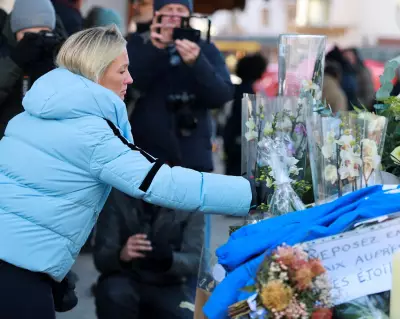
In a stunning conclusion to one of the music industry's most high-profile legal battles, Sean 'Diddy' Combs has been handed a 30-year prison sentence for his conviction on federal sex trafficking and racketeering charges.
The sentencing, delivered in a New York courtroom, represents a dramatic downfall for the hip-hop mogul once celebrated as one of music's most powerful figures. Prosecutors successfully argued that Combs had operated a sophisticated criminal enterprise that exploited vulnerable individuals over nearly a decade.
The Fall of an Empire
Once valued at nearly $1 billion, Combs stood silently as the judge detailed how his entertainment empire had concealed what prosecutors described as "systematic abuse and exploitation." The sentence reflects the severity of charges that included sex trafficking, racketeering, and facilitating illegal activities across state lines.
"This wasn't just about individual crimes," the presiding judge noted during sentencing. "It was about the creation and maintenance of a criminal organisation that preyed upon the vulnerable."
Victims Speak Out
Multiple victims provided impact statements detailing how Combs used his wealth and industry influence to manipulate and control them. Their testimony painted a disturbing picture of a man who leveraged his celebrity status to commit serious crimes while maintaining a public persona as a business visionary and philanthropist.
One victim described how Combs's "charm and power made it impossible to say no," while another spoke of being "trapped in a nightmare disguised as opportunity."
Industry Reckoning Continues
The case represents one of the most significant convictions in a series of #MeToo-era reckonings within the music industry. Legal experts suggest the lengthy sentence sends a clear message that wealth and celebrity status provide no protection from justice.
Combs's legal team had argued for leniency, citing his philanthropic work and contributions to music, but the judge dismissed these arguments, stating that "no amount of charitable giving can excuse the profound harm caused to these victims."
The former mogul will serve his sentence in a federal correctional facility, with eligibility for parole only after serving 85% of his term. His legal team has indicated they will appeal the conviction and sentence.





